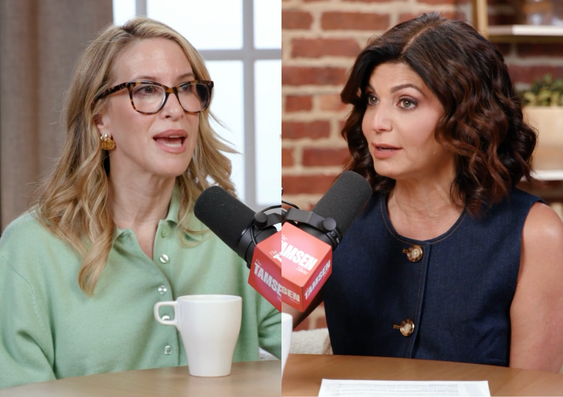When you hear the words “sleep apnea,” you probably picture an older man snoring loudly and gasping for air in the middle of the night. But here’s what most people don’t realize: women get sleep apnea too and it often looks completely different.
In my recent episode of The Tamsen Show, I sat down with leading clinical psychologist and behavioral sleep medicine expert Dr. Shelby Harris to talk about why women in midlife are being misdiagnosed and overlooked when it comes to sleep disorders. What she shared completely changed the way I think about sleep apnea.
Why Sleep Apnea in Women Gets Missed
Unlike the typical symptoms doctors look for in men—like loud snoring or obvious gasping for air—women often present with more subtle signs. Many women with sleep apnea don’t snore at all. Instead, they describe symptoms like:
- Waking up feeling exhausted, even after a full night in bed
- Daytime fatigue or “foggy” thinking
- Anxiety or mood swings
- Insomnia or trouble staying asleep
- Frequent nighttime urination
Because these symptoms overlap with perimenopause, anxiety, or even just “stress,” women are frequently told it’s hormonal or all in their heads. As Dr. Harris pointed out, even the screening tools most doctors use for sleep apnea were originally designed around male symptoms. Which means women are often missed entirely.
Why This Matters
Sleep apnea isn’t just a snoring issue, it’s a serious health condition.
Left untreated, it can increase the risk of high blood pressure, heart disease, stroke, weight gain, and memory problems. And for women in midlife already navigating major hormonal shifts, undiagnosed sleep apnea can make everything feel worse.
If you’ve been told you’re fine because you don’t snore, but you still feel chronically exhausted or wired at night, it’s worth pushing for a deeper evaluation.
What You Can Do
Here are a few steps Dr. Harris recommends:
- Track your symptoms. Keep a log of how you feel when you wake up, how often you wake at night, and whether you’re experiencing brain fog or daytime sleepiness.
- Ask your doctor about a sleep study. You don’t need to be a loud snorer to qualify. If your symptoms point to fragmented or poor-quality sleep, a home sleep study might be the next step.
- Be your own advocate. If you’re being brushed off, bring in data. Mention what you’ve learned about how sleep apnea presents differently in women.
The Bottom Line
You don’t have to snore to have sleep apnea. And you don’t have to settle for feeling exhausted every day. If your sleep has changed and nothing you’ve tried is working, this might be the missing piece.
Listen to my full conversation with Dr. Shelby Harris on The Tamsen Show
%252520Small.png)
( $47 value )























